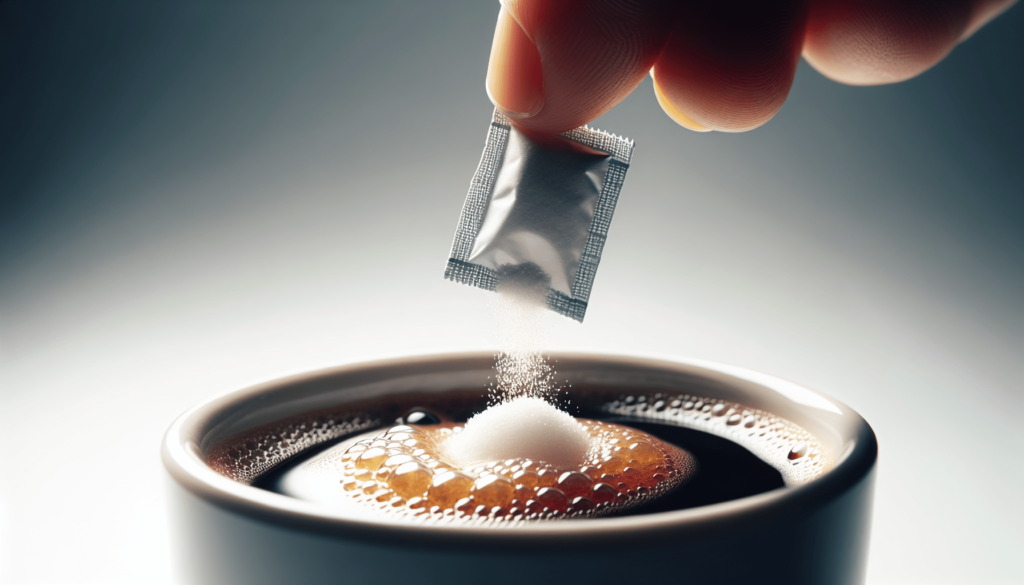Have you ever wondered about the controversy surrounding artificial sweeteners? Many people use these sugar substitutes as a way to cut calories and satisfy their sweet tooth without consuming traditional sugar. However, there is an ongoing debate about the safety and potential health effects of these products. Let’s take a closer look at the controversy behind artificial sweeteners and explore both sides of the argument.

What are Artificial Sweeteners?
Artificial sweeteners are synthetic sugar substitutes that are many times sweeter than sugar but contain few to no calories. They are commonly used in diet sodas, sugar-free candies, and other products marketed as “low-calorie” or “sugar-free.” Some popular artificial sweeteners include aspartame, saccharin, sucralose, and stevia.
Artificial Sweeteners in Common Products
You may be surprised to learn just how many products contain artificial sweeteners. From diet sodas to salad dressings, these sugar substitutes can be found in a wide range of foods and beverages. Be sure to check the labels of products if you are trying to avoid artificial sweeteners.
The Controversy
The controversy surrounding artificial sweeteners stems from conflicting research and differing opinions among health experts. While some studies suggest that artificial sweeteners can help with weight loss and blood sugar control, others raise concerns about potential negative health effects. Let’s examine some of the key arguments on both sides of the debate.
Proponents of Artificial Sweeteners
Supporters of artificial sweeteners argue that these sugar substitutes can be an effective tool for reducing calorie intake and managing weight. Since artificial sweeteners are much sweeter than sugar, they can satisfy cravings for sweetness without adding extra calories to your diet. Additionally, some studies have shown that using artificial sweeteners in place of sugar can help with blood sugar control in people with diabetes.
Critics of Artificial Sweeteners
Critics of artificial sweeteners raise concerns about the long-term health effects of these products. Some studies have suggested a potential link between artificial sweeteners and negative health outcomes, including weight gain, metabolic issues, and even an increased risk of certain cancers. Additionally, there is concern about the impact of artificial sweeteners on gut health and the microbiome.
Potential Health Effects
The potential health effects of artificial sweeteners are a major point of contention in the debate surrounding these sugar substitutes. While some studies have indicated that artificial sweeteners may have benefits for weight management and blood sugar control, others have raised concerns about negative health outcomes. Let’s take a closer look at some of the potential health effects associated with artificial sweeteners.
Weight Gain
One of the most hotly debated topics surrounding artificial sweeteners is their potential impact on weight gain. While some research suggests that using artificial sweeteners in place of sugar can help with weight loss and weight management, other studies have indicated that artificial sweeteners may actually contribute to weight gain. The mechanisms behind this potential effect are not yet fully understood, but it is an area of ongoing research and debate.
Metabolic Issues
In addition to concerns about weight gain, artificial sweeteners have also been linked to metabolic issues such as insulin resistance and dysregulation of glucose metabolism. Some studies have suggested that regular consumption of artificial sweeteners may have a negative impact on insulin sensitivity and may increase the risk of metabolic disorders like type 2 diabetes. However, more research is needed to fully understand the relationship between artificial sweeteners and metabolic health.
Cancer Risk
Another area of concern regarding artificial sweeteners is their potential link to an increased risk of certain cancers. While early studies on artificial sweeteners like saccharin raised alarms about their carcinogenic potential, subsequent research has not definitively confirmed a link between artificial sweeteners and cancer. However, some health experts remain cautious about the long-term use of artificial sweeteners and their potential impact on cancer risk.
Gut Health
The impact of artificial sweeteners on gut health and the microbiome is another area of interest in the ongoing debate about these sugar substitutes. Some studies have suggested that artificial sweeteners may alter the composition of gut bacteria and disrupt the balance of the microbiome, which could have negative implications for overall health. However, more research is needed to fully understand the effects of artificial sweeteners on gut health.
Common Types of Artificial Sweeteners
There are several different types of artificial sweeteners available on the market, each with its own unique properties and characteristics. Some artificial sweeteners are derived from natural sources, while others are synthesized in a lab. Let’s take a closer look at some of the most common types of artificial sweeteners and their uses.
Aspartame
Aspartame is one of the most widely used artificial sweeteners and is commonly found in diet sodas, sugar-free gum, and other low-calorie products. It is made from two amino acids, aspartic acid, and phenylalanine, and is about 200 times sweeter than sugar. Aspartame is known for its sweet taste and low-calorie content but has been the subject of controversy due to safety concerns.
Saccharin
Saccharin is one of the oldest artificial sweeteners and is about 300-400 times sweeter than sugar. It is commonly used in tabletop sweeteners like Sweet’N Low and in a variety of other products, including beverages, canned fruits, and chewing gum. Saccharin has been the subject of controversy due to its potential link to cancer, but subsequent research has not conclusively confirmed this association.
Sucralose
Sucralose is a no-calorie artificial sweetener that is about 600 times sweeter than sugar. It is commonly used in a wide range of products, including diet sodas, baked goods, and ice cream. Sucralose is known for its heat stability, which makes it suitable for use in cooking and baking. While some concerns have been raised about the safety of sucralose, regulatory agencies like the FDA have deemed it safe for consumption.
Stevia
Stevia is a natural sweetener derived from the leaves of the stevia plant and is about 200-300 times sweeter than sugar. It is often marketed as a “natural” alternative to artificial sweeteners and is used in a variety of products, including beverages, desserts, and snack foods. Stevia is generally considered safe for consumption, but some people may experience a bitter aftertaste when using stevia as a sweetener.

Conclusion
The controversy behind artificial sweeteners is a complex and ongoing debate that involves conflicting research, differing opinions among health experts, and concerns about the potential health effects of these sugar substitutes. While artificial sweeteners can be a useful tool for reducing calorie intake and managing weight, there are also valid concerns about their impact on metabolic health, cancer risk, and gut health. As with any food or beverage ingredient, it is important to be informed and make choices that align with your personal health goals and preferences. Whether you choose to use artificial sweeteners or opt for natural sweeteners like honey or maple syrup, the key is to consume them in moderation and as part of a balanced diet.

